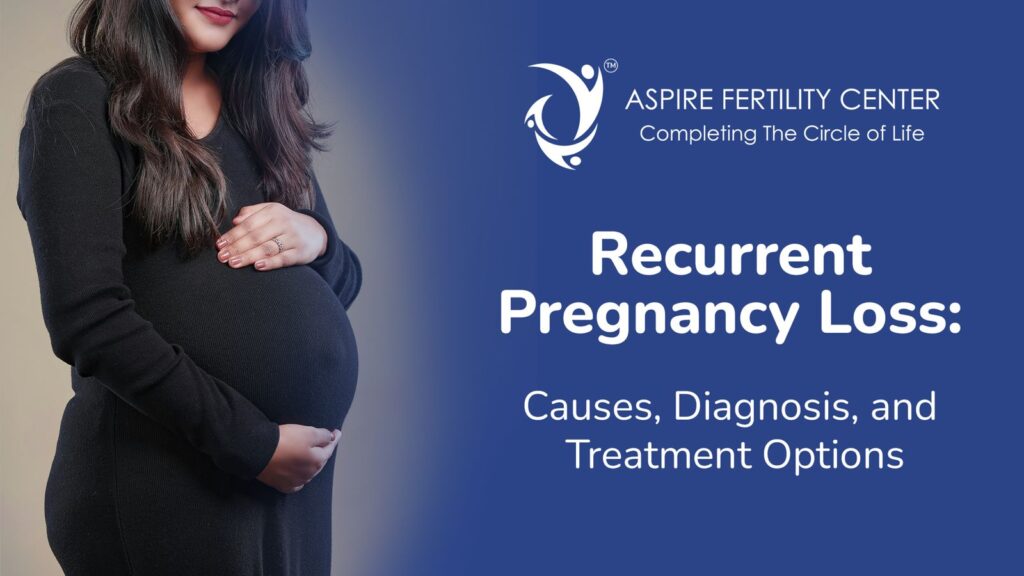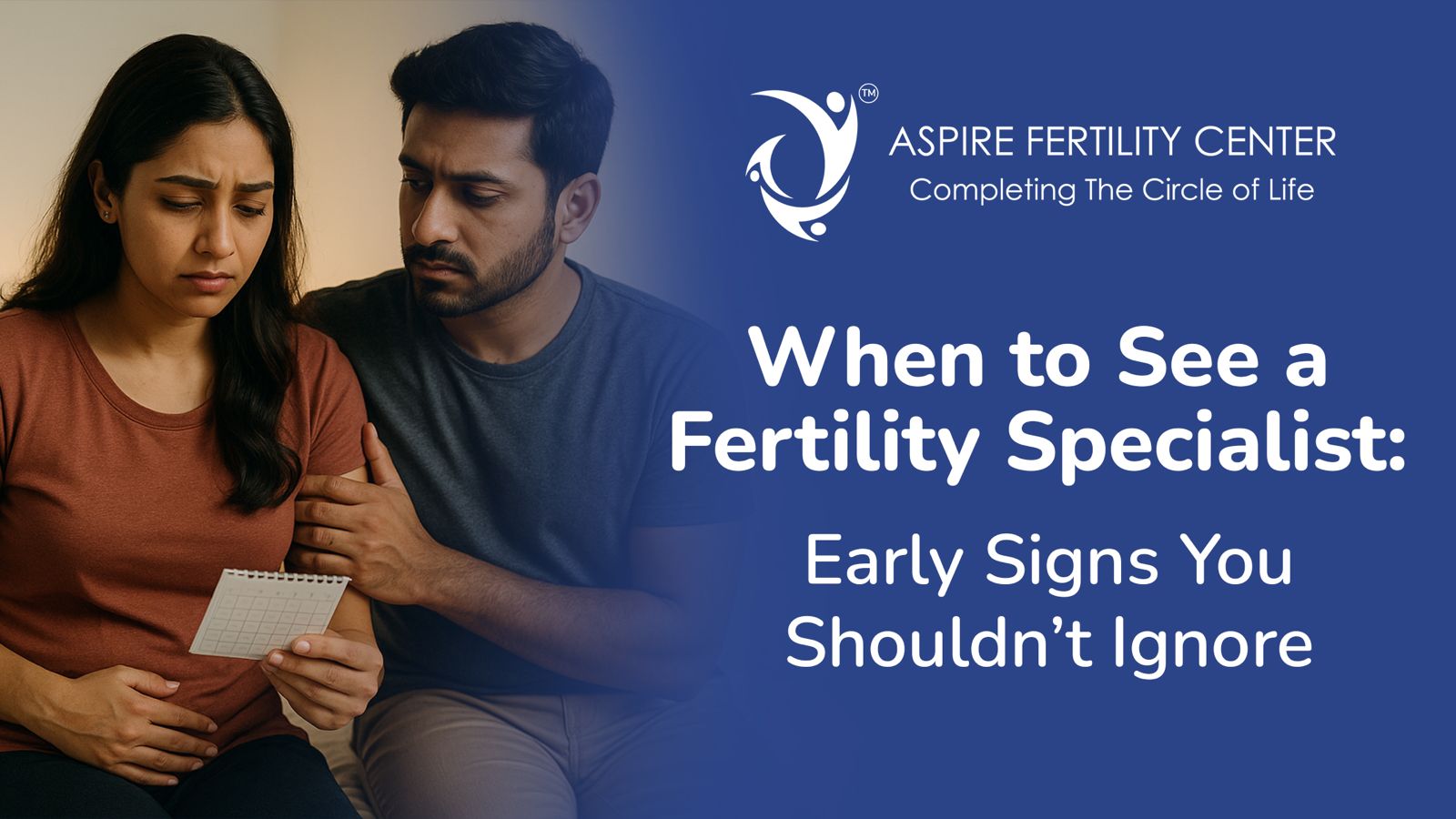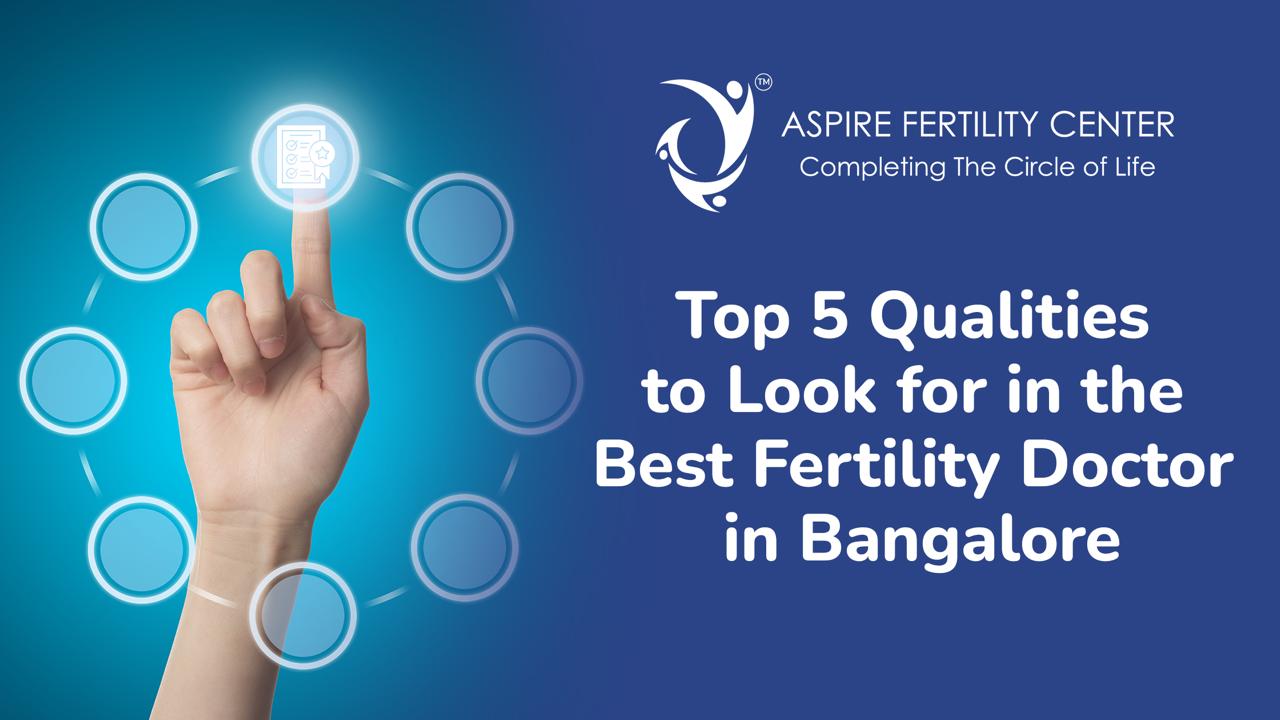
Recurrent Pregnancy Loss: Causes, Diagnosis, and Treatment Options at Aspire Fertility Center
Recurrent pregnancy loss (RPL), also known as recurrent miscarriage, is a heartbreaking experience for couples trying to start or expand their families. Experiencing the loss of a pregnancy multiple times can be both emotionally and physically exhausting. It is a condition that affects approximately 1% of couples, yet it is often misunderstood and underdiagnosed.
At Aspire Fertility Center, Bangalore, we are committed to providing world-class care and advanced solutions to couples dealing with recurrent pregnancy loss. Our personalized approach ensures that every couple receives the support and treatment they need to achieve their dream of parenthood.
Meet Our Founder & Clinical Director, Dr. Ashwini G. B.
Aspire Fertility Center is led by Dr. Ashwini G. B., one of only 50 ESHRE* (European Society of Human Reproduction & Embryology) certified Clinical Embryologists in India, and the only specialist in Bangalore with this prestigious certification. With decades of experience, Dr. Ashwini has been instrumental in transforming the lives of thousands of couples struggling with infertility.
Under her leadership, Aspire Fertility Center boasts a team of highly skilled doctors and fertility specialists who are experienced in various fields of reproductive medicine. Together, they deliver exceptional care by combining advanced reproductive technologies with a compassionate, patient-centered approach.
This leadership, paired with cutting-edge treatments such as IVF, ICSI, and Preimplantation Genetic Testing (PGT), has contributed to Aspire Fertility Center’s consistently high success rates, making it a trusted destination for fertility solutions.
What is Recurrent Pregnancy Loss?
Recurrent pregnancy loss is typically defined as two or more consecutive pregnancy losses before 20 weeks gestation. It is important to differentiate recurrent miscarriage from sporadic miscarriage, as recurrent pregnancy loss often points to underlying issues that require thorough evaluation and specialized care.
While the physical symptoms of recurrent miscarriage can be similar to a single pregnancy loss, the emotional toll increases with each occurrence. Couples facing this challenge often feel isolated, so a supportive and informed medical team is essential.
Causes of Recurrent Pregnancy Loss
Understanding the causes of recurrent pregnancy loss is key to addressing the issue effectively. The causes can be broadly categorized into genetic, anatomical, hormonal, immune, and lifestyle-related factors.
Genetic Factors
- Chromosomal Abnormalities: The most common cause of recurrent miscarriage is chromosomal issues in the embryo. These may arise from genetic problems in one or both parents.
- Inherited Conditions: Balanced chromosomal translocations in a parent can lead to unbalanced chromosomes in the embryo, resulting in miscarriage.
Anatomical Issues
- Uterine Anomalies: Structural issues such as a uterine septum, fibroids, or adhesions can interfere with the development of a healthy pregnancy.
- Congenital Malformations: Birth defects in the uterus, such as a bicornuate or unicornuate uterus, can also contribute to recurrent miscarriage.
Hormonal Imbalances
- Progesterone Deficiency: Insufficient progesterone levels can prevent the uterine lining from supporting a pregnancy.
- Thyroid Disorders: Both hyperthyroidism and hypothyroidism are linked to recurrent pregnancy loss.
- Polycystic Ovary Syndrome (PCOS): Women with PCOS are at an increased risk due to hormonal imbalances and insulin resistance.
Immune System Factors
- Antiphospholipid Syndrome (APS): This autoimmune disorder causes blood clots, which can disrupt the pregnancy.
- Other Autoimmune Disorders: Conditions like lupus can also interfere with the body’s ability to sustain a pregnancy.
Infections
- Chronic infections in the reproductive tract, such as cytomegalovirus (CMV), can lead to recurrent pregnancy loss.
Lifestyle and Environmental Factors
- Smoking and Alcohol Consumption: Both have been shown to increase the risk of miscarriage.
- Obesity: Excess weight can interfere with hormonal balance, impacting fertility.
- Stress and Poor Nutrition: These factors can adversely affect pregnancy outcomes.
Diagnosing Recurrent Pregnancy Loss
Diagnosis begins with a comprehensive evaluation to identify potential causes. A combination of tests and assessments ensures that no contributing factor is overlooked.
Medical and Reproductive History
Your fertility specialist will review your medical history, including previous pregnancies, miscarriages, and any known health conditions.
Genetic Testing
- Karyotyping: A blood test to check for chromosomal abnormalities in both partners.
- Preimplantation Genetic Testing (PGT): This is used during IVF to select healthy embryos for transfer.
Uterine Assessment
- Ultrasound and Hysteroscopy: These imaging techniques help detect abnormalities like fibroids, polyps, or septa.
- Saline Sonohysterography: A more detailed scan of the uterine cavity.
Hormonal Testing
Blood tests to evaluate thyroid function, progesterone levels, and other hormones critical for pregnancy.
Immune and Blood Clotting Tests
Screening for conditions like APS or other clotting disorders that may contribute to miscarriage.
Treatment Options for Recurrent Pregnancy Loss
At Aspire Fertility Center, our approach to treating recurrent miscarriages is comprehensive and tailored to the specific needs of each patient.
Genetic Counseling and Testing
- Genetic counseling helps couples understand the role of chromosomal abnormalities and their impact on pregnancy.
- Preimplantation Genetic Testing (PGT) during IVF ensures that only chromosomally normal embryos are used.
Surgical Interventions
- Uterine anomalies, such as septum or adhesions, can often be corrected using minimally invasive procedures like hysteroscopy.
Hormonal Therapy
- Progesterone Supplements: Essential for preparing the uterine lining for implantation and supporting early pregnancy.
- Thyroid Treatments: Medication to stabilize thyroid levels can significantly improve outcomes.
Immunotherapy
- For patients with APS or other autoimmune disorders, medications like aspirin and heparin can improve blood flow to the placenta.
Lifestyle Changes
- Adopting a healthy lifestyle, including a balanced diet, regular exercise, and stress management, can reduce the risk of recurrent miscarriage.
Advanced Assisted Reproductive Technologies (ART)
- IVF with PGT: IVF combined with genetic testing ensures the selection of viable embryos, reducing the likelihood of miscarriage.
Why Choose Aspire Fertility Center for Recurrent Pregnancy Loss Treatment?
Aspire Fertility Center in Bangalore is renowned for its advanced technology and patient-centered care. Here’s why we stand out:
Advanced Technology
Our state-of-the-art facility includes:
- Class 10,000 BioClad Modular Lab for a sterile environment.
- Laser-assisted hatching to improve embryo implantation rates.
- Embryo Micromanipulation for precise handling of embryos.
- Samsung HERA W9 Ultrasound for exceptional imaging accuracy.
Expertise You Can Trust
Led by Dr. Ashwini G. B., Bangalore’s only ESHRE-certified Clinical Embryologist, Aspire Fertility Center offers expert care and advanced diagnostics. Our skilled team provides personalized treatment plans, delivering exceptional outcomes for couples facing recurrent pregnancy loss.
High Success Rates
With over 13,000 successful pregnancies and a decade of experience, our center has helped countless couples achieve their dreams of parenthood.
Comprehensive Support
From genetic counseling to emotional support, we provide holistic care to address all aspects of recurrent pregnancy loss.
Emotional Support for Couples
Coping with recurrent miscarriages can be emotionally draining. At Aspire Fertility Center, we offer:
- Counseling Services: To help couples navigate their emotions and find strength.
- Support Groups: Connecting you with others who have had similar experiences.
- Educational Resources: Empowering you with knowledge to make informed decisions.
Conclusion
Recurrent pregnancy loss is a challenging condition, but it is not insurmountable. At Aspire Fertility Center, we combine compassion, expertise, and cutting-edge technology to help you overcome this challenge. Our center offers comprehensive services, from basic fertility evaluations and tests to advanced reproductive treatment procedures like IVF, ICSI, MACS, Ovarian Rejuvenation, Pre-implantation Genetic Testing, Egg and Sperm Freezing, and more. With our personalized care and advanced treatments, we are dedicated to supporting you on your journey to parenthood. If you’re struggling with recurrent miscarriage, contact us today to learn more about how we can help. Together, we can make your dream of parenthood a reality.
To speak to one of our Fertility and IVF experts, book an appointment at https://p.trias.in/book/client/aspire or you can also call us at 9620004610 / 6410 to schedule a visit at either of our centers in HSR Layout or Sarjapur Road.
FAQs
1. What is the most common cause of recurrent pregnancy loss?
Chromosomal abnormalities in the embryo are the most frequent cause.
2. Can recurrent pregnancy loss be treated successfully?
Yes, with the right diagnosis and treatment plan, many couples achieve successful pregnancies.
3. How is Aspire Fertility Center equipped to handle recurrent miscarriage cases?
We offer advanced diagnostic tools, personalized treatment plans, and state-of-the-art technologies to address the root causes of recurrent pregnancy loss.
4. Is recurrent pregnancy loss hereditary?
While most cases of recurrent miscarriage are not hereditary, certain genetic factors, such as balanced translocations in one or both partners, can increase the risk. Genetic testing and counseling can help identify and address such issues effectively.
5. How long should I wait before trying to conceive again after a recurrent miscarriage?
The recommended waiting time depends on the underlying cause and your overall health. In most cases, waiting for at least one to two months allows your body to recover. Your doctor will provide personalized guidance based on your specific situation.





